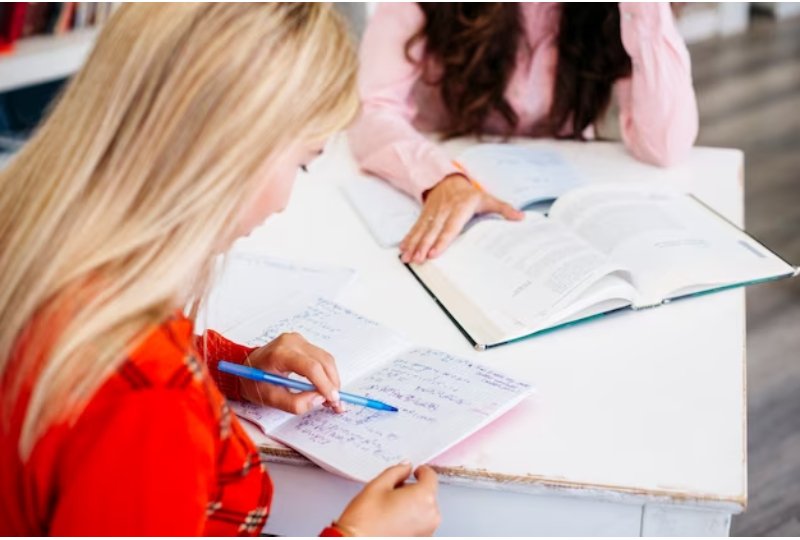Library lessons are a key part of quality education. An engaging library lesson plan is one that captivates students and encourages them to develop critical thinking skills. When designed correctly, library lessons provide an enjoyable and valuable learning experience for all grade levels. This article explores different facets of library lesson plans, including what makes an engaging lesson plan, ideas for differentiating instruction across all grade levels, and strategies for incorporating technology into library lessons. Additionally, this article offers best practices for assessing library lessons and provides examples of how library resources can be used to enhance learning for all students.
What Makes An Engaging Library Lesson Plan?
Engaging library lesson plans that meet the educational needs of every student, while also keeping them engaged and excited to learn. To create engaging library lessons, teachers must consider the learning styles of all students and adapt the lesson to accommodate them. Additionally, library lesson plans should include plenty of hands-on activities, such as games, worksheets, and projects. These activities should be tailored to the grade level and should also include active student participation. Additionally, library lesson plans should provide adequate opportunities for students to ask questions and discuss the material with their peers.

How To Incorporate Different Learning Styles Into Library Lesson Plans?
Library lesson plans should be designed to accommodate all learning styles. Visual learners should have access to visuals that demonstrate the concepts being taught, while auditory learners should engage in activities that involve storytelling and discussion. For kinesthetic learners, teachers can incorporate movement into their library lesson plans with activities that involve building and creating. Additionally, library lessons should always include hands-on activities for students to complete, as this encourages engagement and ensures that all learners are able to access the material being taught.
Tips For Crafting Engaging Library Lesson Plans
- Engaging library lesson plans begin with thoughtful consideration of the objectives of the lesson and the students’ age and abilities.
- To ensure that all students are able to access the material being taught, teachers should use multiple forms of instruction. For example, lessons can incorporate a combination of lecture, discussions, activities, and projects.
- Additionally, teachers should make sure to keep the language used in lessons accessible and appropriate for their students’ grade level.
- Additionally, library lessons should always be engaging, and teachers can achieve this by using activities that are fun and energizing.
Strategies For Differentiating Library Lesson Plans
Differentiated instruction is key to ensuring that library lesson plans meet the needs of all students. To differentiate library lessons, teachers can incorporate different activities and materials that cater to students’ individual abilities and interests. Additionally, teachers should be mindful of providing opportunities for students to work independently and in small groups. This allows students to work at their own pace and ensures that all students are able to access the material being taught.
Ideas For Integrating Technology Into Library Lesson Plans
Technology is a powerful tool for creating engaging library lesson plans. Technology can be used to create web-based lesson plans, which include interactive activities such as digital games and projects. Additionally, technology can be used to facilitate communication between teachers and students by providing access to online discussion forums and digital textbooks. Finally, technology can be used to provide real-time feedback to students, providing them with an immediate assessment of their understanding.
Best Practices For Assessing Library Lesson Plans Across Grade Levels
Assessing library lesson plans across all grade levels is an important part of ensuring that students master the material being taught. To ensure that all students are making adequate progress, teachers can incorporate formative assessments into their library lessons. These assessments can take the form of quizzes, tests, and other evaluation activities. Additionally, teachers can use anecdotal notes and student surveys to assess students’ understanding of the material being taught. Additionally, it is important to provide students with feedback on their work, as this encourages them to continue making progress.
Using Library Resources To Enhance Learning For All Students
Library resources are a valuable tool for enhancing learning for all students. Library resources can be used to supplement instruction, providing students with additional resources to deepen their understanding of the material being taught. Additionally, library resources can be used to create fun activities that engage students and allow them to explore subject material in unique and exciting ways. Finally, library resources can be used to help students further research topics and to create independent projects, which can be added to their portfolios.
Developing Engaging Activities To Drive Student Learning Outcomes
Creating engaging activities is key to ensuring that students are able to achieve learning outcomes. To engage students, teachers should use a variety of learning activities, such as games, Worksheets, and presentations. Additionally, teachers should provide plenty of group work, as this allows students to work together and learn from each other. Additionally, teachers should make sure to incorporate elements of student choice into their activities, allowing students to explore topics that interest them. Finally, teachers should ensure that activities are tailored to the grade level and that all students have access to materials and equipment they need to complete the activities.
Conclusion
Library lessons are an essential part of quality education. To ensure that library lesson plans are engaging and effective, teachers must design them to meet the needs of all learners. This includes incorporating different activities and materials into lessons, providing opportunities for student autonomy, and integrating technology into instruction. Additionally, teachers should use a variety of assessment methods to track student understanding, and they should be sure to make use of library resources to enhance students’ learning experiences. With these strategies, teachers can design library lesson plans that engage students and support them as they develop their critical thinking skills.